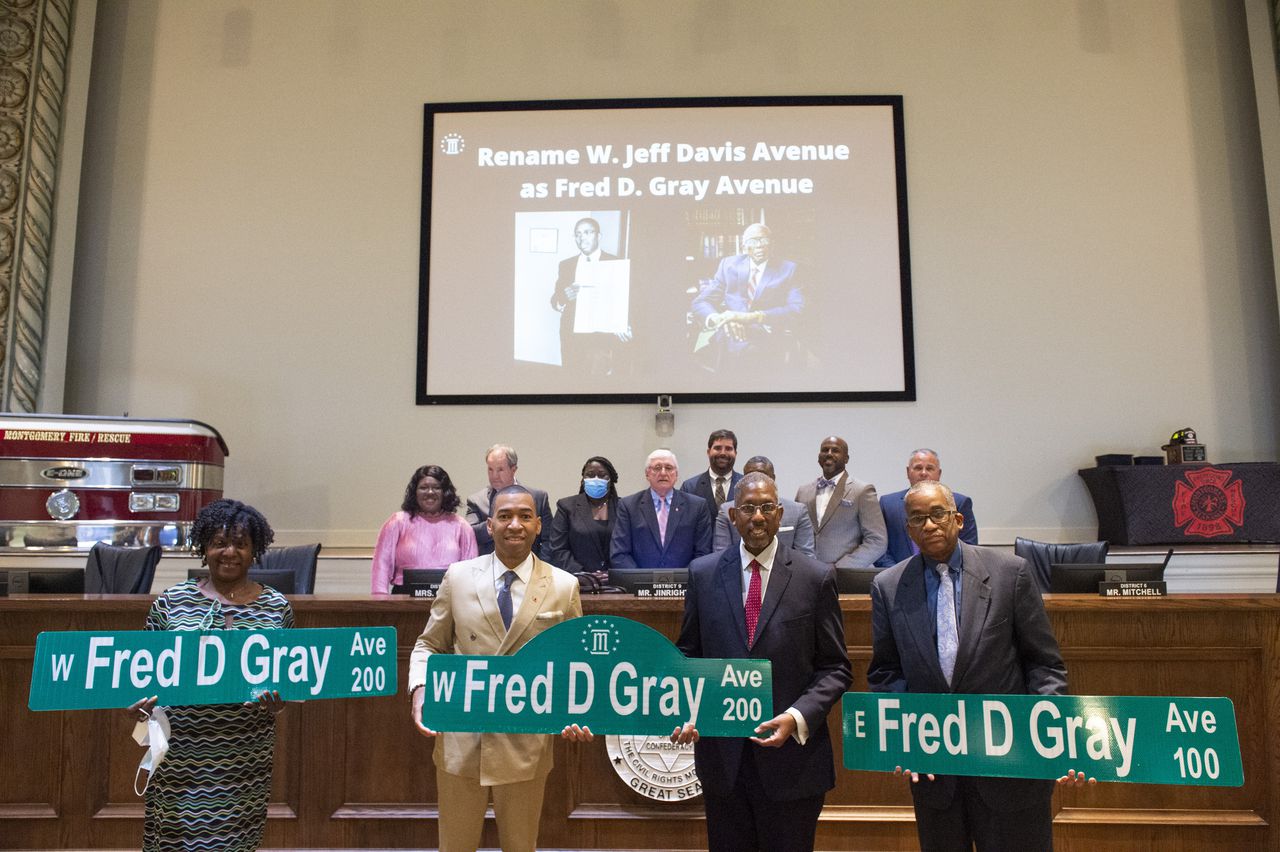Montgomery mayor urges council to rename Confederate, racist monuments
Montgomery Mayor Steven Reed called on the city council to move forward with his proposal to rename city streets and monuments honoring Confederate and racist leaders with figures from the Civil Rights Movement and the city’s “real heroes.”
“We are working to shift the narrative surrounding Montgomery to celebrate our real heroes and not those that have long stymied Montgomery’s progress,” Reed said Tuesday in addressing the council.
“Symbols matter in this community, especially those that need to be changed to fit where we are now and where we want to go,” the mayor continued. “As our nation examines our shared history in an unflinching and honest way, there is no better statement for the Birthplace of the Civil Rights Movement to make than naming streets for the heroes and torchbearers of justice, freedom and equity.”
In March 2022, the mayor formed a committee of local and state historians and archivists long with Montgomery residents that looked at “ties to the Confederacy in this city,” he said.
Among the committees recommendations were to rename streets and monuments after:
- Ralph David Abernathy, Civil Rights leader
- Johnnie Carr, Civil Rights leader
- Nat King Cole, famous singer and Montgomery native who was attacked by Ku Klux Klan members while performing in Birmingham
- Clifford and Virginia Durr, Civil Rights activists
- Solomon Seay, attorney who helped integrate Montgomery schools
- Mary Ann Neeley, Montgomery historian
- Vernon Johns, Civil Rights leader
- Percy Lavon Julian, Montgomery native who was the grandson of slaves and is credited with creating synthesized medications to treat glaucoma and rheumatoid arthritis
- Martin Luther King, Jr., Civil Rights leader
- John Lewis, Troy native and Civil Rights activist who later became congressman from Georgia
- Jo Ann Robinson, helped organize the Montgomery Bus Boycott
- Fred Gray, Civil Rights activist and attorney whose clients included Rosa Parks
The committee also recommended removing the names of these streets:
- Calhoun Road, named after former Vice President John C. Calhoun, who supported slavery
- Clanton Avenue, named after James Holt Clanton, who commanded the 1st Alabama Calvary during the Civil War
- Cortez Street, named after Spanish conquistador Hernan Cortes
- De Soto Street, named after Spanish conquistador Hernando de Soto
- Early Avenue, named after Jubal Early, a Confederate commander
- Jackson Street, named after
- Jefferson Davis Avenue, named after the President of the Confederate States of America
Reed noted there has been progress in his effort, including the renaming of Jefferson Davis Avenue after Fred Gray last year.
But the mayor said the renamings should continue, noting that Montgomery is a tourist destination due to its place in the Civil Rights Movement and that the city’s streets and monuments should reflect its history.
“We cannot just profit off of the history, and then not practice what the history has taught us,” he said.
